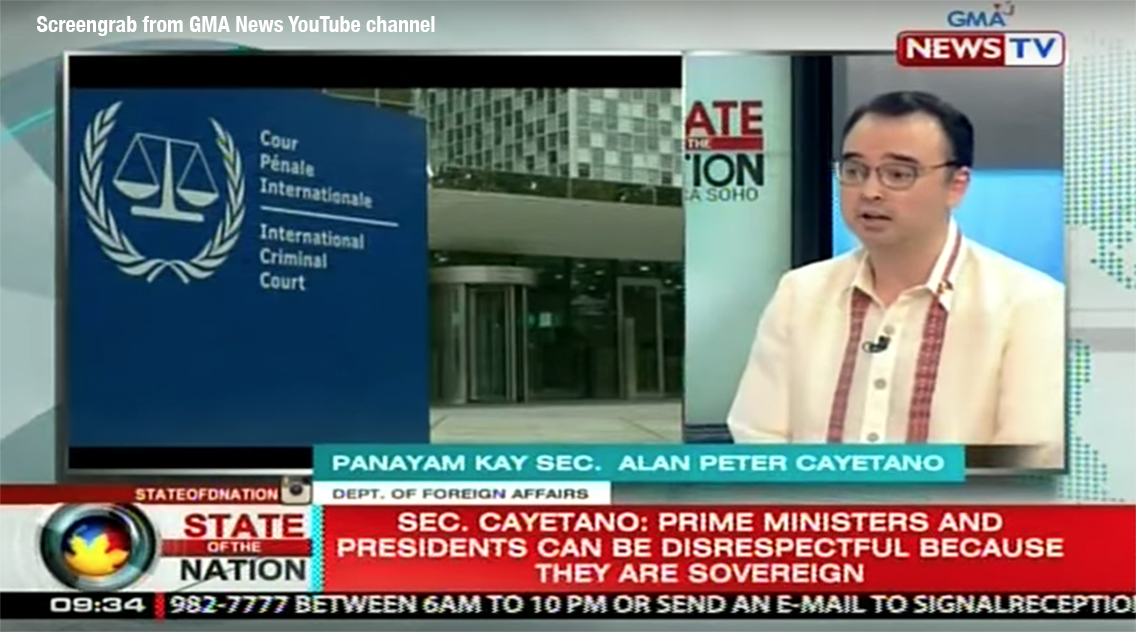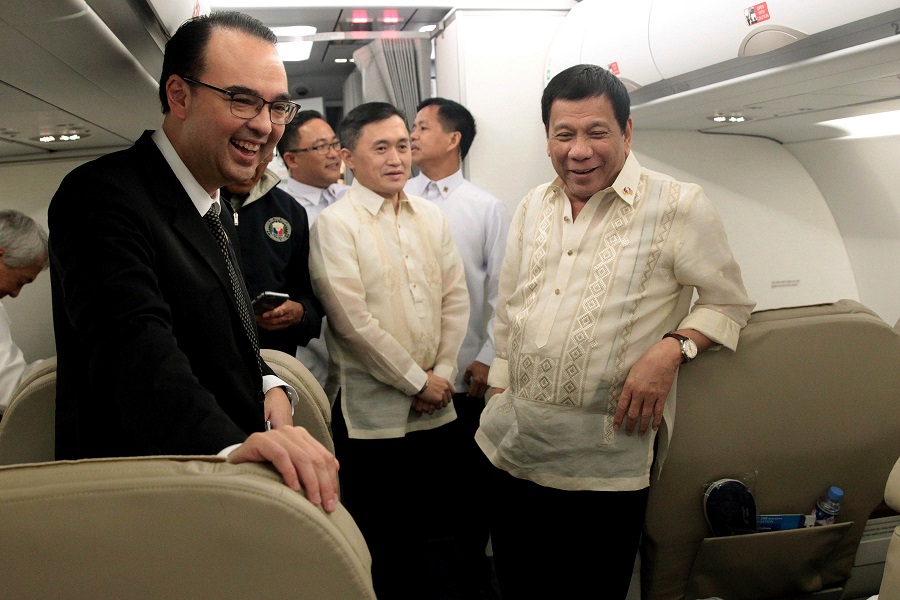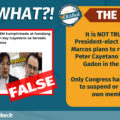Foreign Affairs Secretary Alan Peter Cayetano, who earlier took issue with the “irresponsible and disrespectful” remarks of United Nations High Commissioner for Human Rights Zeid Ra’ad Al Hussein on President Rodrigo Duterte’s mental health, falsely claimed presidents and prime ministers “can be disrespectful” while human rights officials cannot.
STATEMENT
Cayetano made the claim March 14 in a GMA News interview when asked how he would reconcile Duterte’s refusal to apologize for his use of vulgar language:
“Well, nasa role kasi ‘yun eh (it depends on the role). Prime ministers and presidents can be disrespectful. They’re sovereign eh, so they can fight for their people and uh, tell the truth bluntly and uh, and communicate that way. Pero kung presidente ka (but if you’re president) or High Commissioner ka ng (of) human rights, hindi dapat (you shouldn’t).”
Source: REPLAY: State of the Nation Livestream, March 14, 2018, watch from 32:36 to 32:53
Politicians, he said, can be “excused” for political incorrectness, but officials like Commission on Human Rights Chairperson Chito Gascon are held to a higher standard:
“So kung halimbawa pulitiko ako, sinabi ko, blank ‘yung mga taong ‘yan. Iba na si Chito Gascon na chairman siya ng CHR na ganun ang sabihin (For example, I’m a politician and I say, this person is a blank. It’s different for Chito Gascon, who is chair of CHR). If I’m politically incorrect and may nasabi akong mali (I said something wrong) in describing either women or LGBT etc. ‘di ba it doesn’t make it right but you can excuse me. But if I’m chairman of the Commission on Human Rights, hindi ko dapat gawin ‘yun (I shouldn’t do that).”
Source: REPLAY: State of the Nation Livestream, March 14, 2018, watch from 32:54 to 33:17
FACT
The Administrative Code of 1987, which lists 30 grounds for disciplinary action including discourtesy and disgraceful conduct, does not make distinctions among public officials based on their roles.
Neither does Republic Act No. 6713 or the Code of Conduct and Ethical Standards for Public Officials and Employees, which enumerates who are considered “public officials”:
“Section 3 (b) “Public Officials” includes elective and appointive officials and employees, permanent or temporary, whether in the career or non-career service, including military and police personnel, whether or not they receive compensation, regardless of amount.”
Source: Civil Service Commission, Republic Act No. 6713, Section 3 (b)
Enacted to promote a high standard of ethics in public service, the law mandates all public officials including the president uphold good morals and customs, among others:
“Section 4 (c). Justness and sincerity. Public officials and employees shall remain true to the people at all times. They must act with justness and sincerity and shall not discriminate against anyone, especially the poor and the underprivileged. They shall at all times respect the rights of others, and shall refrain from doing acts contrary to law, good morals, good customs, public policy, public order, public safety and public interest.”
Source: Civil Service Commission, Republic Act No. 6713, Section 4 (c)
Sources:
Civil Service Commission, Republic Act No. 6713 or the Code of Conduct and Ethical Standards for Public Officials and Employees
Department of Foreign Affairs, Statement of Foreign Affairs Secretary Alan Peter S. Cayetano: World Needs More Leaders Like Rodrigo R. Duterte, March 9, 2018
Official Gazette, Executive Order No. 292
(Guided by the code of principles of the International Fact-Checking Network at Poynter, VERA Files tracks the false claims, flip-flops, misleading statements of public officials and figures, and debunks them with factual evidence. Find out more about this initiative.)



